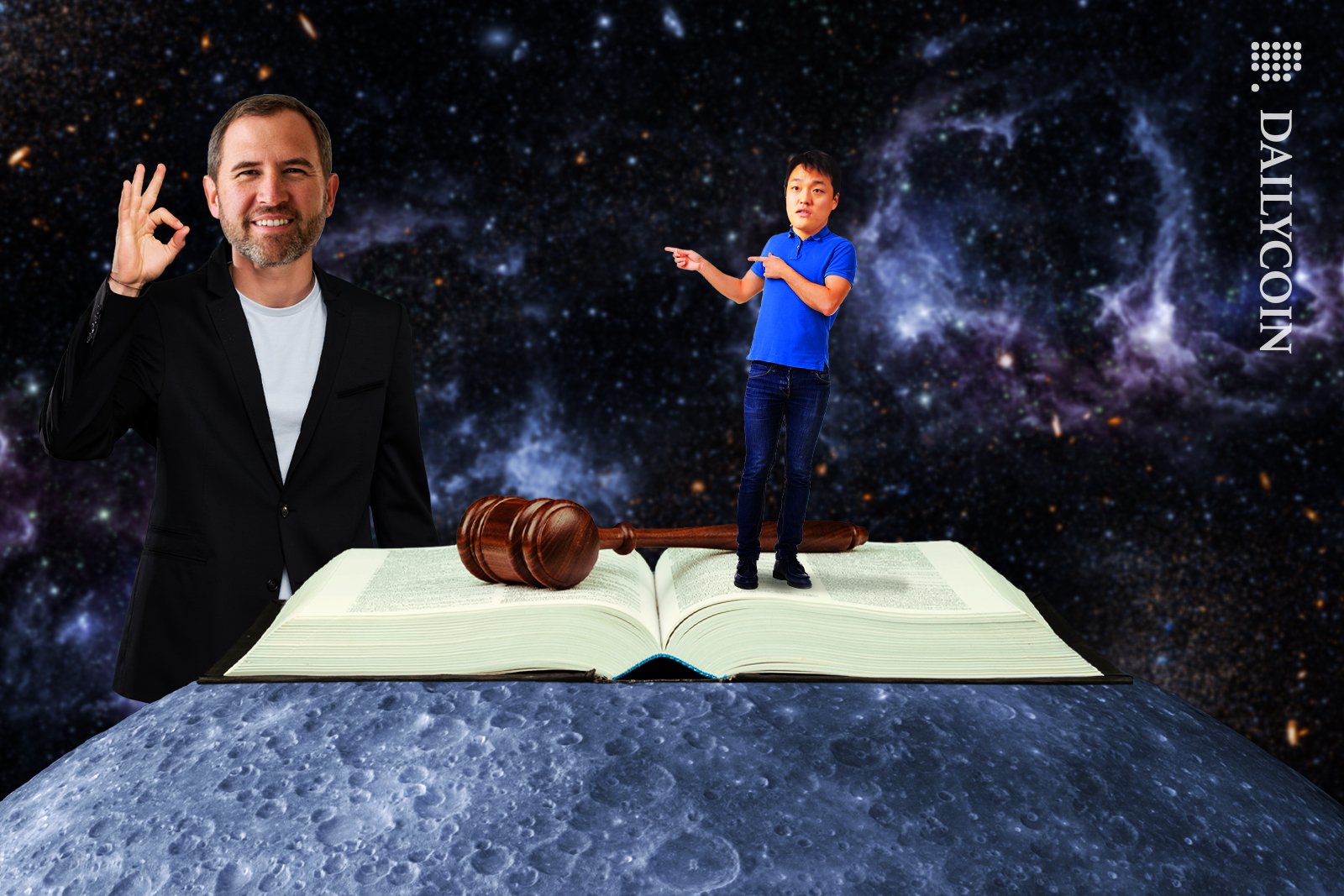
- The SEC filed charges on TerraForm Labs nine months after the UST crash.
- Do Kwon’s lawyers argue that UST stablecoin wasn’t made for sale.
- Last month, Do Kwon & his partner were sent to four months in prison.
TerraForm Labs seeks to dismiss the U.S. Securities and Commission (SEC) for defrauding customers, market manipulation, and breaching Capital Markets law. The motion to dismiss this case was first filed in April, but the defendant’s lawyers added supplements on June 15th, 2023.
TerraForm Labs and founder Do Kwon are defended by Dentons lawyers, who presented a new argument last month, stating that the failed algorithmic stablecoin $UST isn’t supposed to be an investment contract but rather a stablecoin for practical purposes.
To support this claim, Dentons used the SEC’s request for a restraining order against Binance.US, as well as Hinman’s emails related to the high-profile Ripple vs. The SEC case, which recently saw a breakthrough, was Judge Torres’ landmark decision that XRP (XRP) does not fall under the notion of security.
Do Kwon & Terra Pull Out the Torres Card
While the groundbreaking decision in regards to $XRP has partially proved the SEC’s lack of authority to validate the bold claim that all cryptocurrencies except for Bitcoin (BTC) are securities, the recent developments in the highly-publicized case also empowered TerraForm Labs lawyers to use the argument in the recently penned supplement.
Sponsored
Judge Analisa Torres inspired Judge Jed Rakoff to allow the two defendants to file a supplementary argument for the motion. The original complaint by the SEC reads: “The Terraform ecosystem was neither decentralized, nor finance. It was simply a fraud propped up by a so-called algorithmic “stablecoin” – the price of which was controlled by the defendants, not any code.”
As thousands of devastated investors are looking to gain closure on last year’s Terra Luna Fiasco, it’s unlikely that the charges would go away if the SEC is deemed legally insufficient. This means that market manipulation and customer defraud charges could get passed on to another institution, as Kwon is likely to be repatriated to South Korea.
On the Flipside
- The SEC alleges that TerraForm Labs sold $LUNA & $MIR altcoins on the secondary market but not $UST.
- The South Korean court also ruled that $LUNA is not a security.
Why This Matters
Ripple’s victory in the SEC case is believed to set a core precedent for crypto regulation.
Sponsored
Delve into the latest cryptocurrency news:
New U.S. Senate Bill Targets Bringing DeFi to Heel by Compliance
